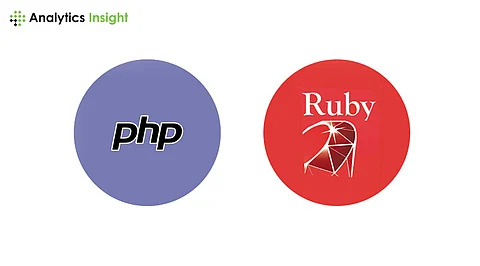

For a web developer, the most vital aspect of web development is the programming language that they choose. Among the most talked-about languages in web development currently, PHP and Ruby are probably the ones topping the list. Both have proven themselves as solid weapons for building dynamic web applications, but they differ widely in their performances and ease of use, as well as in the strength of their respective ecosystems and community support. In this piece, we delve into the head-to-head comparison between PHP and Ruby to help determine the suitability of each for your next web development project.
PHP (Hypertext Preprocessor) has been a dominant force in web development for over two decades. Originally designed for server-side scripting, PHP has evolved into a full-fledged programming language with broad use in building dynamic websites and web applications. Today, it powers some of the biggest websites on the internet, including Facebook, WordPress, and Wikipedia.
Widely Adopted and Supported: PHP has an incredibly vast user base. This means a great ecosystem of libraries and tools, along with frameworks available for use. It has places like WordPress or even Drupal that have really spearheaded the use of PHP as the go-to programming language for every content management system (CMS) or blog.
Very Fast and Efficient: PHP is often praised for its speed in executing scripts, especially in comparison to some other languages. Recent updates (such as PHP 7 and PHP 8) have significantly improved its performance and reduced memory usage.
Cost Effective: PHP is an open-source language. There are many hosts in the service of PHP that would be cheap, thus making it easier for small and medium businesses to run on PHP.
Outdated Syntax: Although some changes have been made in PHP over the years, and while it still looks relatively modern, its syntax and design can sometimes seem outdated compared to modern programming languages. This may be somewhat of a challenge for both new developers and those coming from other languages.
Security Issues: PHP has a mixed reputation for security. Often, concerns arise because of new people writing poor code and insecure applications. In fact, this is more a problem of poorly written PHP code than of the language itself.
At its core, Ruby is a very dynamic and object-oriented programming language. The magic of Ruby was to gain fame in the world of web development via the Rails framework. It proved itself to revolutionize web development by simplifying the process of building and maintaining complex applications with less code. In general, Ruby emphasizes simplicity and developer happiness, so it would be a joy for many developers to work with it.
Ruby on Rails: The most significant asset of Ruby is that it provides Rails. It's an opinionated framework with built-in ways to offer everything that a web developer requires, from authentication to routing and database management. This aspect takes away development time and, thus, makes Ruby really suitable for rapid prototyping and startups.
Active Community: One of the finest strengths of Ruby is its community. There are a good number of people who are into research and development in an open-source way, which allows a developing student to get resources, documentation, and assistance as a result of this burgeoning community.
Scalable for Large Applications: While often seen as a solution to small projects, Ruby has a reputation for scaling up to large complex applications. Great examples of successful startups like GitHub and Airbnb have been built using Ruby on Rails, proving their scalability and suitability for large web applications.
Performance: Typically, Ruby is slower than PHP, especially when handling high-traffic applications. If optimized properly, Ruby on Rails can lead to resource intensity, and hence, performance could be an issue in large-scale systems.
Learning Curve: Ruby is beautiful and developer-friendly, but it has a steeper learning curve than PHP for even beginners. The Rails framework, in particular, will take longer to master because of its conventions and complexity.
The decision to choose PHP or Ruby requires careful consideration, including the nature of the web development projects one is undertaking.
For Small to Medium Scale Projects: When building simple websites or web applications, PHP is likely to be a high preference, especially if it has to be linked with a CMS like WordPress or if using a more established LAMP (Linux, Apache, MySQL, PHP) stack. Again, it is fast, cheaper, and has a vast ecosystem, which is ideal for smaller, most preferably content-oriented websites.
For Huge-Scale Developments: Both can support large applications. However, Ruby (through Rails) is often the choice for big jobs because of its powerful features for scalability and complex business logic. Usually, PHP is used in a broader system in frameworks like Laravel, which offers most of the advantages similar to those of Ruby on Rails.
Both PHP and Ruby have their strengths and weaknesses, and the right choice depends on your specific use case. PHP is a reliable, cost-effective solution that has stood the test of time, making it a great choice for traditional web applications. Ruby, on the other hand, offers a more elegant, developer-friendly experience with Rails, making it perfect for startups or anyone seeking to rapidly build and scale web applications. Ultimately, both languages have the potential to deliver high-quality web applications, so the decision comes down to your project's needs, your team's expertise, and your long-term goals.
